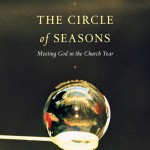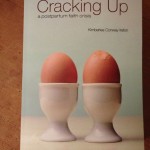In his newest book, The Pleasures of Reading in an Age of Distraction, Alan Jacobs defines “one dominant, overarching, nearly definitive principle for reading: Read at Whim.”
He goes on to quote Randall Jarrell, a poet and essayist and author of the delicious children’s book The Bat-Poet, which has language so ripe and rich, my kids and I wanted to sink our teeth into it and lets its juice dribble down our chins. But I digress.
Jarrell tells of once meeting a scholar and critic who said he read Rudyard Kipling’s Kim every year. Jarell comments:
The critic said that once a year he read Kim; and he read Kim, it was plain, at whim: not to teach, not to criticize, just for love—he read it, as Kipling wrote it, just because he liked to, wanted to, couldn’t help himself…. [H]e read it not for anything he could get out of it but for itself. And isn’t this what the work of art demands of us? … It demands of us that we too see things as ends, not as means—that we too know them and love them for their own sake…So I say to you…Read at whim! read at whim!
Jacobs takes Jarell’s final words there and builds a whole book around them.
I confess, I was skeptical. After all, if Jane read at whim, she’d choose every Disney Princess book in the library (and I would have to poke out my eyes with a fork). I’m not convinced reading all those books would be good for her. In fact, I’m pretty convinced it would be the opposite, filling her head with trite and badly-written prose. And that’s the last thing I want her to develop an appetite for.
And, let’s be honest, if I read at whim, I’d read a pretty steady diet of YA fiction, much of which is subpar. The problem with subpar books is (in my experience, anyway) that you start to get used to them and you stop noticing after awhile that they’re subpar; they start to seem all right to you, and your standards of what’s “good” keep slipping lower and lower until you end up in the easy reader aisle happily checking out all the Disney Princess books with your 5-year-old daughter.
Okay, so maybe I exaggerate slightly. But my point is: the things we read physically mold our brains, so if we’re always reading stuff that’s only okay, our brain gets used to stuff that’s only okay, and we end up finding better stuff unpalatable because it’s usually a bit (or a lot) harder to read.
So I confess I was at first wary of Jacobs’s Read at Whim mantra. But early on in the book, he allayed my concerns. Jacobs rejects “the too-easy and often-recited ‘at least they’re reading’ trope” and scorns “the idea that the act of passing one’s eyes over a page is so intrinsically valuable that it doesn’t matter what words the eyes are scanning.”
Whew.
But then he’s right back to appealing to the reader’s own pleasure. It takes him the rest of the book to unpack what that criterion actually means. And it’s a book well worth reading.
For my part, though I alternately argued with and affirmed Jacobs’s theses, I came away from the book with a reinforced sense of the importance of reading to my children: “the act of being read to—and therefore the book itself—is powerfully associated with being loved.” (He’s got brain scientists who can back up that claim at the neurological level—how cool is that?)
I also felt a renewed sense of responsibility in my role as my children’s teacher, guiding them away from pabulum and twaddle to penetrating and toothsome brain-fare, because as Jacobs points out, “once a reader is acclimated to the pedestrian, the mundane, and the predictable, he or she can come to accept them as normal.”
I confess I have occasionally wondered: if my parents had read me less of Disney’s Jungle Book and more of Rudyard Kipling’s would now I have a more sophisticated literary palette? Would I be a better writer? Perhaps not. And it’s rather pointless to speculate, since I’ll never know.
But if my son and daughter are any indication, my hunch is yes and yes. At 8, Jack is already a better and more prolific writer than I was at 14. At 5, Jane sits through—and enjoys—densely written and sparsely illustrated books like The Hobbit, which I only marginally enjoyed at 12.
After reading Jacobs’s book, I’m more convinced than ever that these propensities exist because Jack, Jane, and I read together every day and because I insist on reading almost exclusively good books—by which I mean stories that are well-told and well-written and therefore immensely enjoyable, or as Jacobs would say, pleasurable. All those good words have seeped into their malleable and growing brains.
They’re seeping into my middle-aged but still malleable brain, too, and making a better reader and, I hope, a better writer, out of me as well.




